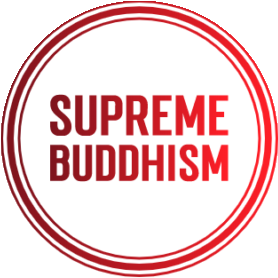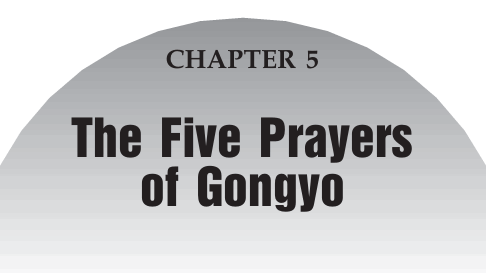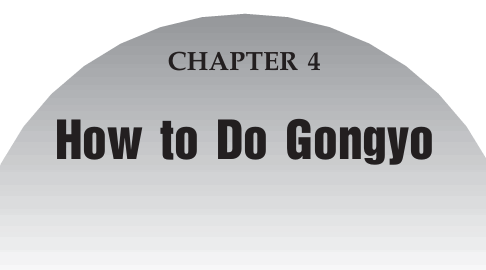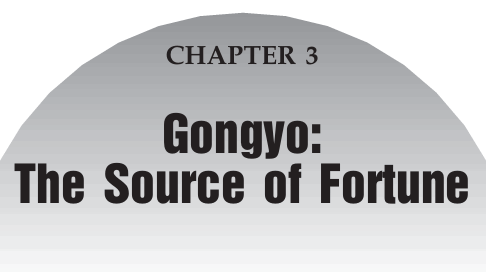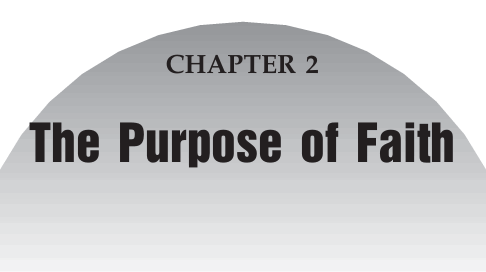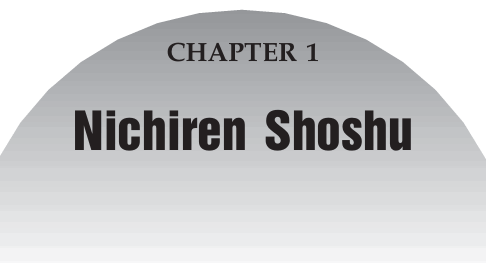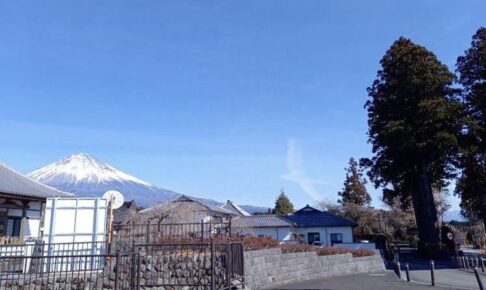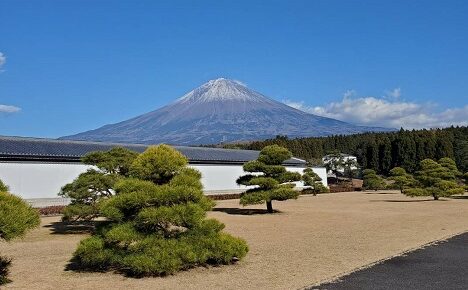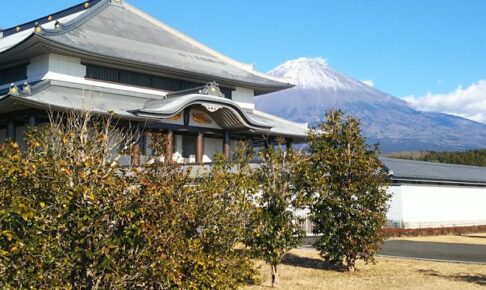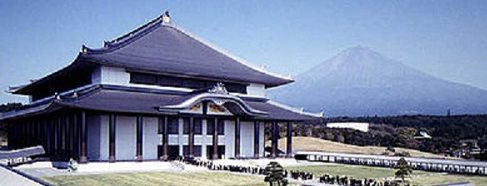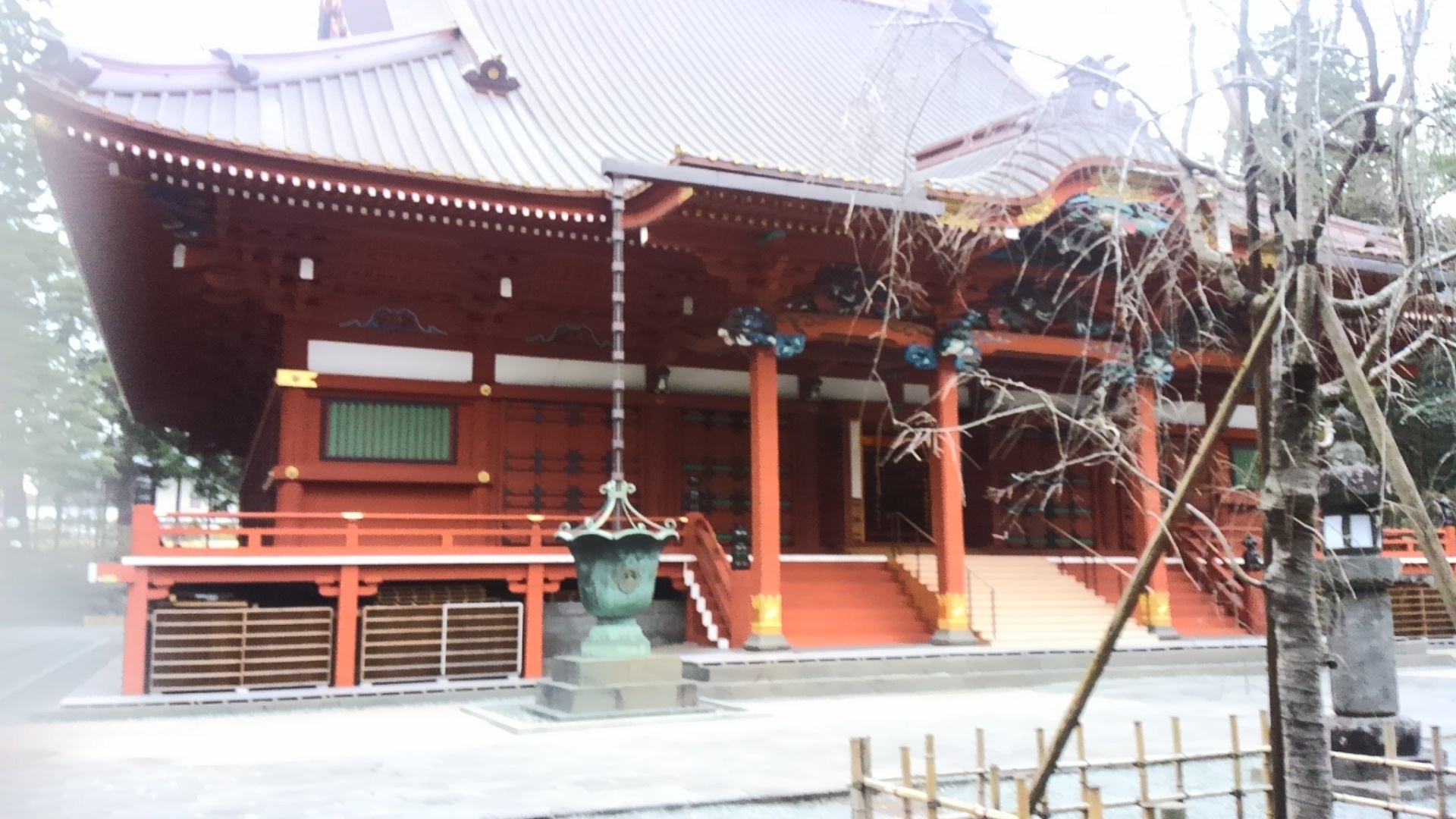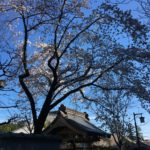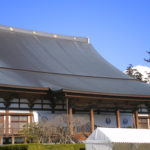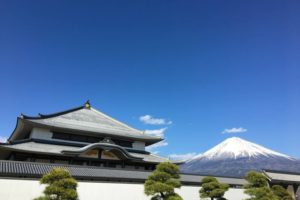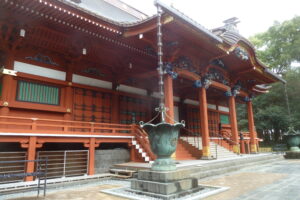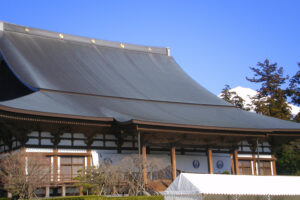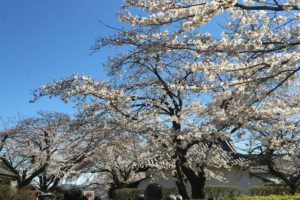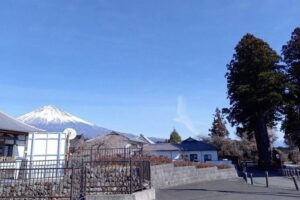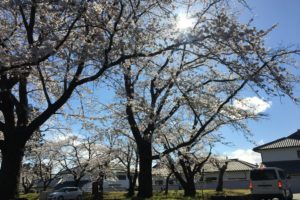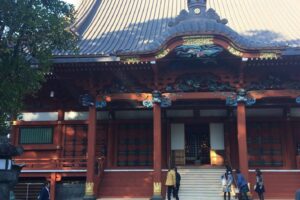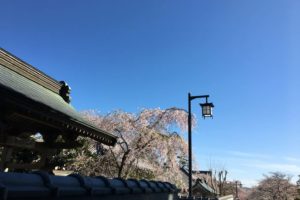Today we will focus our attention on the ninth stage of the treatise, “On Securing the Peace of the Land through the Propagation of True Buddhism” (Rissho ankoku-ron). This stage, along with the final tenth stage that follows, ultimately the conclusion of this treatise.So far, the host in the question and answer exchange, who represents Nichiren Daishonin, explained that the cause for the occurrences of the three calamities and seven disasters was none other. He stated that one of the fundamental offenders was Honen’s Nembutsu sect, which was in vogue at the time in Japan.He further stated that the only way to bring peace and tranquility was to eliminate such. slander.
The host used scriptural passages and actual examples to present a logical, methodical explanation, in setting forth. his truly compassionate directions. As a result, the guest’s deep-rooted delusions were cleared. He recognized that the religion that he had heretofore embraced was, in fact, a heretical and slanderous teaching.In the present stage, he pledged to abandon the heretical sect, to revere the sagely priest and to endeavor to achieve tranquility in the nation and peace in the world.
Nichikan Shonin, the Twenty-sixth High Priest of the Head Temple, titled this ninth stage the “Elimination of Doubt and the Cultivation of Faith.” The passage from the Rissho ankoku-ron that is attract at the Oeshiki ceremony, the most important ritual in Nichiren Shoshu contains the words of this ninth stage.I is the tremendously significant stage that teaches the refutation of heresy and the manifestation of the truth.
Let us briefly summarize this stage.
First, the guest’s delusions were cleared as a result of the instructions of the host, who represents Nichiren Daishonin.The guest moved off his seat, straightened his collar and showed his deference in their relationship of master and disciple. The guest stated that, while there are many Buddhist sects and many issues that he does not entirely comprehend, he was now absolutely certain of Honen’s misunderstandings. Thus, he expressed his intentions to completely halt his offerings of alms to slanderous entities and to thoroughly uphold True Buddhism.
In response, the host was delighted to witness the guest’s determination to discard heresy and to embrace the truth. He expounded that upholding faith in this teaching would cause the elimination of all disasters and calamities and the manifestation of peace and tranquility described the benefits of taking faith in True Buddhism.The host pointed o in the nation.For the first time, the host however, that people can be fickle and that their faith can be jeopardized by devilish functions, even when the people practice the True Law. Thus, he cautioned the guest.
Moreover, he stated that two of the seven types of disasters described in the Sutra of Yakushi Buddha (Yakushi Sutra); one of the three calamities mentioned in the Great Collection Sutra (Daijuku Sutra); and one of the seven calamities listed in the Sutra of the Benevolent King (Ninno Sutra) had not as yet occurred.Since it was evident that initial misfortunes had already occurred , the later disasters would follow without fail.The host declared that it was imperative to promptly eliminate heresy and slander in order to achieve peace and tranquility in the nation and personal happiness in this and future existences.
In the conclusion of the ninth stage, the host warned the guest against being fickle. He used excerpts from the sutras to demonstrate that believing in heretical teachings, revering slanderous practices, and criticizing the Lotus Sutra, the True Law, would inevitably cause him to fall into the Hell of incessant suffering.
Next, I will present the essential issues set forth in the ninth stage. In the beginning of this stage , the guest stated:
The Buddhist teachings vary greatly and it is difficult to investigate each doctrine in full.I have had many doubts and perplexities and have been unable to distinguish right from wrong.
These confusions and delusions remain unchanged to this day.In fact , there are far more sects today than there were in Nichiren Daishonin’s time.People wonder about the significance of religion, and they are unable to distinguish between correct and erroneous doctrines. Many uphold blind faith, without first achieving a clear understanding of the differences among the teachings. Even in the face of
obvious scientific contradictions, many people never question or criticize the teachings. They consider figures such as god to be absolute beings or historical and epistemological realities, and they blindly believe in such entities.
In the Rissho ankoku-ron, the guest was able to attain This was the result of the shakubuku efforts of the host, who showed him documentary evidence of the truth, thoroughly explained the principles, and presented him with supporting verification from current reality.
Today, if the people of the world attention and sincerely listen to the teachings of Nichiren Daishonin, our true master, they would, without fail, realize their misunderstandings, confusions and delusions. Further, would pay they would be utterly amazed at the absolute nonsense of the beliefs and practices that they have heretofore upheld.As individuals who have been able to embrace the teachings of Nichiren Daishonin, we must enthusiastically present the true doctrines of the True Law and our true master to those who are still clinging to their own confusions and delusions.
The next essential point from this segment is described in the following excerpt:
Why do I say this? Because, of the seven types of disasters described in the passage from the Sutra of Yakushi Buddha (Yakushi Sutra) that I cited earlier, five have already occurred.Only two have yet to appear, the “calamity of invasion from foreign lands” and the “calamity of revolt within one’s own domain.”… If the first predicted misfortune in the sutra has already
occurred, as is obviou, then how can we doubt that the later disasters will The hast is referring here to the three calamities and seven disasters mentioned in four sutras, two of which are the Sutra of Yakushi Buddha (Yakushi Sutra) and the Great Collection Sutra (Daijuku Sutra). He points out that, because of the slander that permeätes the nation, most of these catastrophes have already occurred.He warned that, if Hojo Tokiyori, the sovereign of the nation, who was represented by the guest, did not discard heretical teachings and embrace True Buddhism and if he did not eliminate slanderous practices, then, without fail, the sovercign would experience the “calamity of invasion from foreign lands” and the “calamity of revolt within one’s own domain.” These were disasters That had not yet occurred.
This declaration was the essential issue that Nichiren Daishonin communicate to Hojo Tokiyori by presenting him with the Rissho-ankoku-ron.This is the significant core of the treatise.
At that time, the feudal government in Kamakura held absolute control over the entire nation, and it could ot conceive of a revolt happening within its own domains.In addition, since its establishment as a nation, Japan had never been invaded by a foreign country.The feudal government officials could not imagine that Japan would be invaded and never seriously considered it to be an issue.However, the Daishonin warned, “if the first predicted misfortune in the sutra has already occurred, as is obvious, then how can we doubt that the later disasters will follow?” These predictions, in fact, came true.
Thirteen years after the submission of the Rissho ankoku-ron, the “calamity of revolt within one’s own domain” occurred, when a treasonous plot of insurrection within the Hojo clan led to bloodshed.
Moreover, the “calamity of invasion from foreign lands” occurred, when seven years after the submission of this treatise, a Mongol envoy arrived in Japan.Then, fourteen years later, and twenty-one years after that, the Mongols launched a full-scale invasion on Japan, leading to tremendous warfare Indeed, the predictions made by the Daishonin in the Rissho-ankoku-ron were right on target.
The Daishonin wrote the following in the Gosho, “A Sage Perceives the Three Existences of Life” (Shonin chisanji):
A sage is one who fully understands the three existences of life-past, present and future.(MW-2, p. 257)
The fact that Nichiren Daishonin was able to accurately predict the occurrence of these two calamities was undeniable evidence that he was none other than the True Buddha of the Latter Day of the Law.The founders of new, controversial religions frequently offer predictions based, not on logic or reason, but on nothing more than a purported revelation from a god, The Daishonin’s predictions were not at all like these shallow pronouncements. prognostications were entirely based on the Sutra of Yakushi Buddha (Yakushi Sutra) and the Great Collection Sutra (Daijuku Sutra). They were none other than the golden words of the Buddha, supported by actual proof. These various calamities actually occurred.
Nichiren Daishonin, the True Buddha, explained that Kosen-rufu will be achieved “as surely as an arrow aimed at the earth cannot miss the target.” (“The True Entity of Life” [MW-1, p, 93] ). Thus, we must advance ever more in shakubuku to achieve our great objective of Kosen- rufu.
The following passage is also contained in the ninth stage of the Rissho ankoku-ron:
You have transformed yourself through your association with me, and like the bramble growing in the hemp field, you have learned to stand up straight.
This passage describes the process in which one who entertained distorted thoughts was able to transform them into correct notions, through his association with a highly virtuous, lofty individual. In specific terms, this passage explained how the guest was instructed by the host and was then able to embrace the truth.
The comparison here uses the example of a hemp field.The bramble, which by nature grows crooked, is able to grow straight in a hemp field, supported by hemp plants.This comparison can be eminently used in our daily faith and practice.
We all have our own, individual traits. Because of our personalities and differences, there may be those among us who feel that they want to practice this faith peacefully, by themselves.Some do not want to attend meetings, or feel that their individualities would be compromised if they associated too closely with others.So, some of us may hesitate to attend large meetings and gatherings at the homes of believers, Some of us may even neglect to go to the temple, even though we are fortunate enough to have this place of worship close enough where we can frequently visit it.
However, if we maintain our faith and practice according to our own individual thoughts, then our common mortal hearts will function as the master of our faith. Like the bramble bush, our faith will gradually become distorted, and before long, our faith will become irreparably twisted, as in the case of the SGI. In contrast, even if our faith is slightly unsteady at first, if we maintain our faith and practice with fellow believers, like the “bramble growing in the hemp field,” we will be encouraged by others and We will receive guidance from the priests. Through this comprehensive support, we will all be able to grow, thrive and stand up straight in our faith and practice.
Overseas believers may experience hardships because of the various difficulties involved in maintaining such support.Precisely because of these hardships, they must all take to heart the notion of the “bramble growing in the hemp field” and encourage and support one another. Let us all put forth our utmost efforts so that we can cultivate tranquility and peace in our respective countries and secure the peace of the land through the propagation of True Buddhism as soon as possible.
